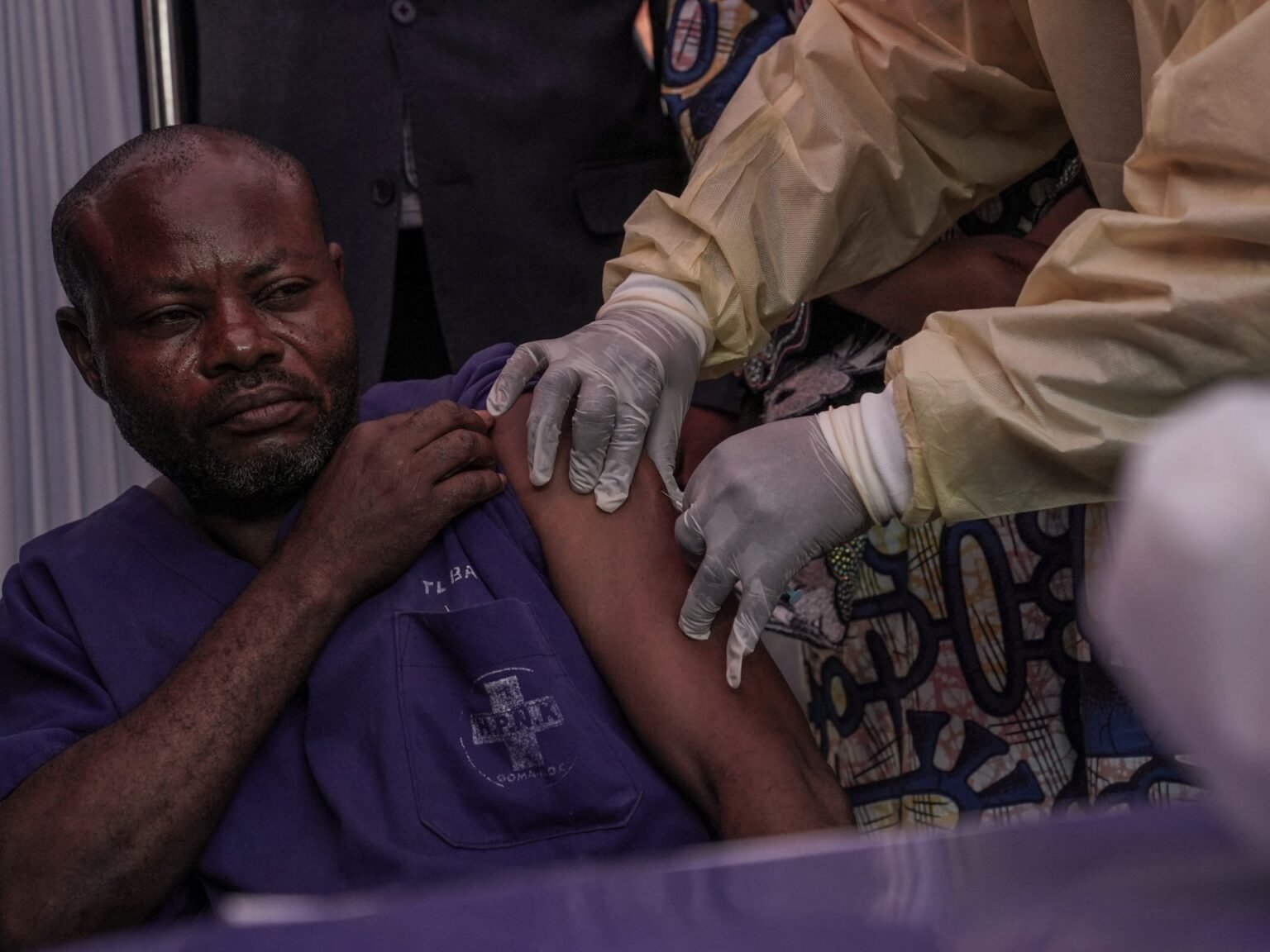The Democratic Republic of Congo has launched a vaccination campaign against mpox in the eastern city of Goma. The campaign aims to target priority groups such as health workers and those with existing health issues. Health Minister Samuel-Roger Kamba emphasized that the limited availability of doses, currently at 265,000, will not be sufficient to cover the entire population of 100 million people. More doses are expected to arrive from France, Japan, and the United States, with US President Joe Biden pledging to donate one million doses to African nations.
Since the beginning of 2024, the DRC has reported over 30,000 suspected and confirmed cases of mpox, resulting in 900 deaths. The virus can spread through close contact with an infected person or animal and typically causes flu-like symptoms and pus-filled lesions on the body. The World Health Organization declared mpox a public health emergency in August after a new variant, named clade Ib, was discovered. Mpox has been detected in 16 African countries this year, highlighting the need for vaccination campaigns and testing to limit the spread of the virus.
The rollout of the mpox vaccine in the DRC is seen as an important step in controlling the virus and ensuring the safety of families and communities. The vaccine drive is scheduled to start on Monday in the eastern part of the country where the current outbreak began last year. The Ministry of Public Health warned that resources are limited, but efforts are being made to prioritize high-risk groups for vaccination, such as individuals with underlying health conditions and healthcare workers. The World Health Organization approved a PCR test to detect mpox by swabbing skin lesions, with about 4,500 tests committed to the DRC, although an arrival date was not provided.
The global community has shown support for the DRC’s efforts to combat the mpox outbreak, with donations of vaccines and testing supplies from various countries. The vaccination campaign in Goma signals a coordinated effort to address the public health crisis and prevent further spread of the virus. The presence of a more infectious variant of mpox has raised concerns, prompting increased surveillance and testing measures to monitor its spread. With the approval of a PCR test for detecting the virus, health officials hope to improve diagnosis and treatment for affected individuals in the DRC.
The mpox outbreak in the DRC underscores the importance of investing in public health infrastructure and preparedness to respond to emerging infectious diseases. The limited availability of vaccines and testing resources highlights the challenges faced by countries in controlling outbreaks, particularly in resource-constrained settings. By prioritizing high-risk groups and implementing targeted vaccination campaigns, the DRC aims to reduce the burden of mpox on its population and prevent further transmission of the virus. As the vaccine rollout progresses, efforts to increase vaccine coverage and access to testing will be crucial in containing the outbreak and mitigating its impact on public health in the region.
Overall, the vaccination campaign in the DRC represents a critical response to the mpox outbreak, with an emphasis on targeting priority groups and mobilizing resources to address the public health crisis. The global support for the DRC’s efforts, including donations of vaccines and testing supplies, demonstrates solidarity in combating infectious diseases and protecting vulnerable populations. With the approval of a PCR test for detecting mpox, health officials can improve surveillance and diagnosis of the virus, enabling more effective management of cases. Moving forward, continued collaboration between international agencies, governments, and healthcare providers will be essential in controlling the outbreak and preventing future pandemics.

